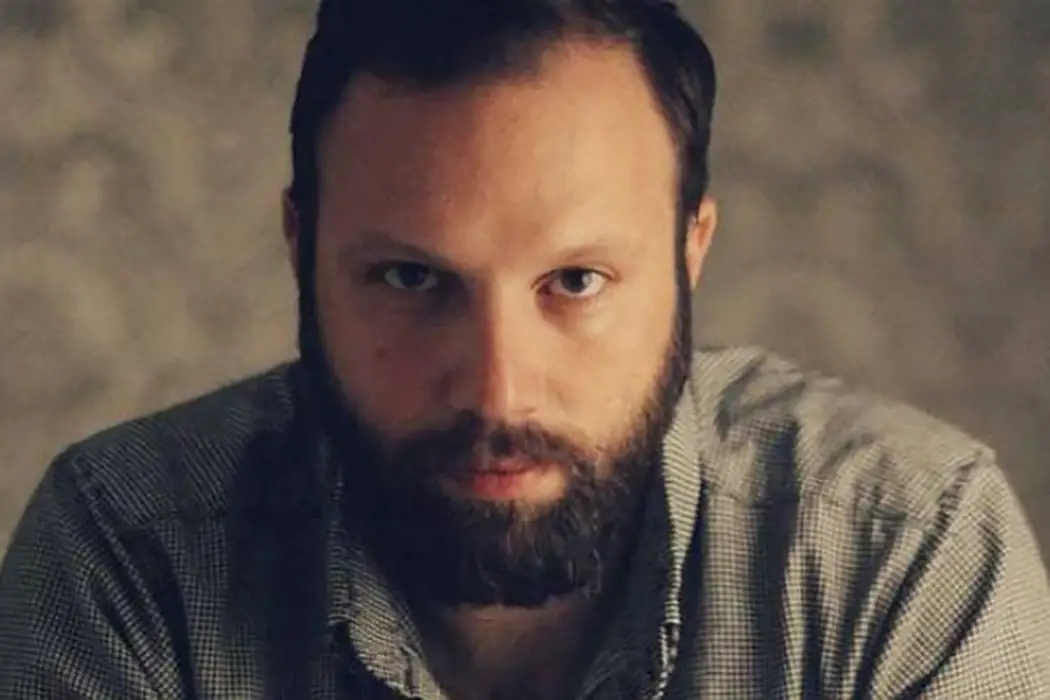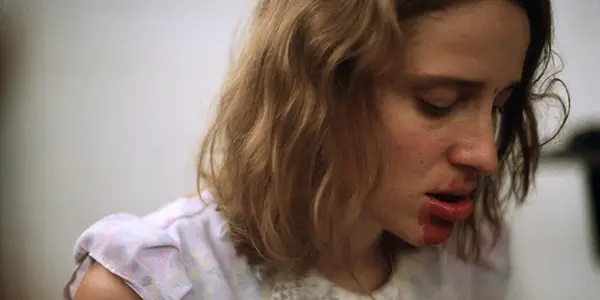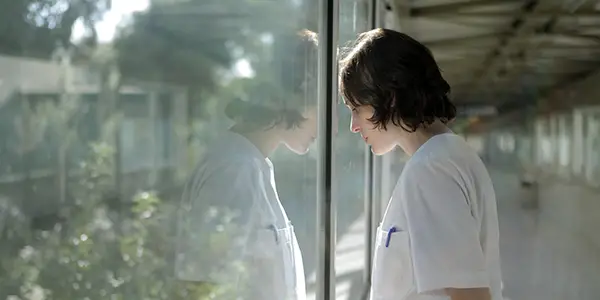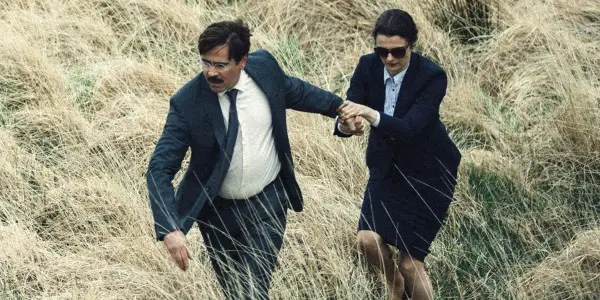The Beginner’s Guide To Yorgos Lanthimos, Director

Michelle Sabato is an actor and writer from Cleveland, Ohio.…
Hollywood has the mentality of “go with what you know”. We’ve seen numerous remakes and sequels over the past couple decades. Rarely does a filmmaker forge through to create unique content, but luckily, Yorgos Lanthimos was up for the challenge. Lanthimos was born in Athens, Greece and started his career, like many other directors, by directing commercials, music videos and short independent films.
Because the Greek film market is not as vast as some other countries, Lanthimos began to pick up jobs filming different ballet and dance-related performances. Lucky for us as audience members, Lanthimos was able to make the transition into feature film director, giving us films that make us look at humanity a little differently.
An Overview Of Greek Cinema
Acting, in general, is attributed to Greece and the first actor, Thespis. When learning about classical theatre, there is an entire genre dedicated to the Greek plays. Greece is responsible for birthing many things regarding the arts, but when it comes to cinema, Greek films have had to fight through hardships. The dawn of cinema happened to come about in conjunction with difficult times in Greece.
During World War I, most of the productions that were screened were documentaries or news commentaries. Director Dimitris Gaziadis used his abilities to capture footage on the ground during the war. Gaziadias, after the war, created the film company, Dag Films, and created some of the first speaking films in the country.
But the peacefulness in Greece did not last long. Many creative people fled the country in the late 1930s, and then the world became entrenched in World War II. But even in the midst of a world war, film producer Philopemen Finos founded Finos Films, which would eventually become one of the most commercially successful studios in Greece. During the German occupation, Finos Films released The Voice of the Heart, which drew in large crowds and put the Germans in a state of unease.
Once the war was over, Greece had its time to shine in regards to film. The 1950s and 1960s were considered the Golden Age of cinema in the country. The aforementioned Finos Films pumped out a lot of films in these two decades. But it was director Michael Cacoyannis who would help bring Grecian film onto a national stage. In 1955, Cacoyannis directed the film Stella, which would screen at Cannes and throw Greece into international film mix. Then in 1964, Cacoyannis directed and wrote Zorba the Greek, starring Anthony Quinn. The film was a huge commercial success and would lead to Academy Award nominations for Best Director, Best Film, and Best Adapted Screenplay.
While war was a thing of the past in Greece, changing of political parties did have an impact on the films that were being produced. Moving into the late 1970s and 1980s, Greece found itself under a Socialist rule. Films were still being made, but not being put into the international pool as they were in the previous decade. The increase of government spending on the film industry led to more arthouse films being produced, not blockbusters. And in retrospect, that worked out perfectly, because this is what may have led to the spark of creativity in a young Lanthimos.
Kinetta (2005)

The first feature film we receive from Lanthimos is Kinetta. The film takes place at a hotel during its off season. Three people, the maid, a police officer and a photo store clerk, decide to reenact different murders that have happened in the area. Their sheer boredom is juxtaposed to the beautiful surroundings of their locale.
While they do these reenactments, they are also going off on their own trysts. The maid fantasizes about becoming different people as she goes from room to room. The photographer begins to have strong feelings for the maid and sees himself as a caretaker to her. And then the policeman, who becomes increasingly more obsessed with owning a new BMW, decides to hire prostitutes, not only to fulfill his sexual needs, but to go go-karting with him. There is a strange dichotomy between where the characters physically are and what their overall purpose is. Lanthimos did not make a huge impression with his first film, Kinetta, but the tone and look would become a theme for his later work.
Dogtooth (2009)

Released in 2009, Dogtooth garnered positive reviews for the film’s cinematography and original (some may say, weird) story-line. The film follows a family in Greece that is secluded from the outside world, leaving the adult children to be fearful of anything that might be on the outside of their compound. It’s as though the parents are conducting some weird behavioral experiment, using their children as their patients.
The father decides to bring in a girl, Christina, who works at his factory to have sex with his son. When things don’t work out the way Christina wants, she looks to one of the sisters to fulfill her desires. Because these kids don’t have relations with the outside world, these sexual experiences work in a very juvenile way. An example is a headband which is used as a barter for a sexual favor.
The world that is created in Dogtooth is intense and strange, but fully realized. International reception reached all the way to the top, with Dogtooth being nominated for Best Foreign Language Film at the Academy Awards. Although it did not win, the nomination put Greek cinema back on the map.
Alps (2011)

Lanthimos followed up Dogtooth with another perplexing story in Alps. A group of therapists come together and refer to themselves as “The Alps”; the reasoning for this moniker is never explained. The therapists impersonate loved ones who have passed away in order to help their patients with the grieving process. It’s not as if the therapists look like the deceased loved ones, which could possibly give some comfort. Instead, the therapists recite dialogue for the families. Almost like a morbid poetry reading night that is supposed to soothe and console.
Sound strange? It is indeed. When confronted with a film about grief, one could assume that there would be a certain level of emotion. Instead, Alps is very clinical and matter of fact. While Alps did not receive as much worldwide praise as Dogtooth, it was entered into the Venice Film Festival, and Lanthimos received praise for another piece of unconventional material.
The Lobster (2016)

Here’s the part of the article where I proclaim my undying love for Colin Farrell. No, seriously, it’s a problem. Farrell stars in The Lobster, alongside Rachel Weisz, in what can easily be described as a dystopian love story. In the world that is created in The Lobster, all single people are forced to move into a hotel and attempt to find a life partner. If they don’t complete this task within 45 days, they will be forcibly turned into an animal of their choice. Farrell plays David, who chooses to be turned into a lobster. The residents of the hotel are able to buy more time if they shoot the single “loners” living in the woods.
With his time running out, David escapes to become a loner in the woods, where he meets a woman, played by Weisz. They fall in love, but cannot verbally communicate it, for fear that they would be killed. People in the hotel cannot be single and have to couple up. People in the woods have to be single and cannot couple up. The Lobster received rave reviews and was nominated for countless awards. Some consider it to be a breakout film of 2016, and I am one of those believers. #TeamFarrell
Common Themes
The films of Yorgos Lanthimos, thus far, explore different parts of what it means to be human: What is our purpose? What makes us human? Why are we here? Does love make us alive?
One of the most common themes that you will find in his films are the bare, almost deadpanned portrayals from all the actors. There is nothing “showy” about any of these films; if anything they are unnerving. And the writing and directing services these unreconstructed performances. Very rarely are motives or actions fully explained; Lanthimos works very much in the unexplained or grey areas. With the exception of The Lobster, these films are shot and styled in a very stark way, which can be attributed to the economical climate in Greece at the time they were shot. Often times, when watching a Lanthimos film, one can often ask themselves “What is going on?”.
The uncertainty of all these films is very deliberate. In an interview with the Los Angeles Times, Lanthimos was asked why he makes films that leave the audience with so many questions. His response was “I think you do this kind of work because you have some questions,” he added. “And the films that we made we tried to structure in a way that they are very open and people can experience them in different ways according to who they are. I can give you an answer, but that’s going to be as valid as someone else’s answer.”
What’s To Come
The Lobster was the first English language film with well known actors for Lanthimos. His next film, The Killing of a Sacred Deer, was shot at the end of 2016 and is currently in post-production. The film reunited Lanthimos with Colin Farrell and added the talents of Nicole Kidman. While giving interviews, Farrell was asked what he could release about the new project, and the answer he gave was “eerie”.
What we can expect from Yorgos Lanthimos is the unexpected. His writing and directing is precise in its uncertainty. His films explore common themes, like love, loss, and protection, but heightens the stakes of the situations that characters are put in.
Conclusion
If you haven’t had the chance yet, I strongly suggest that you catch up on the films of Yorgos Lanthimos. If for nothing else, you will be introduced to story-lines that have not been done before, with haunting deadpan performances.
Do you think Hollywood should go in the direction of Lanthimos, with more original content? What is it that you are looking to see from new filmmakers?
Does content like this matter to you?
Become a Member and support film journalism. Unlock access to all of Film Inquiry`s great articles. Join a community of like-minded readers who are passionate about cinema - get access to our private members Network, give back to independent filmmakers, and more.
Michelle Sabato is an actor and writer from Cleveland, Ohio. By the age of 2 Michelle had memorized all the words to The Wizard of Oz. So, yes, she can carry a conversation with just using movie quotes.













